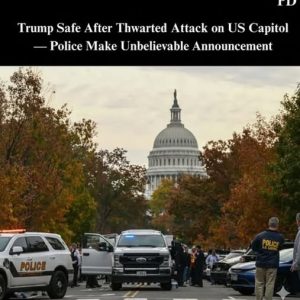The Missouri Supreme Court is currently considering two major legal challenges that could reshape the state’s voting landscape, particularly regarding voter identification requirements and restrictions on voter registration outreach. These cases stem from a 2022 elections law that introduced some of the strictest voting regulations Missouri has seen in recent years. The justices heard oral arguments on both challenges, signaling the importance of the issues at play and the far-reaching implications for voter access, election integrity, and the balance between administrative regulation and constitutional protections. The first case focuses primarily on Missouri’s stringent photo identification mandate, while the second concerns a series of limits on voter-engagement efforts, including who may help individuals register and whether organizations may encourage absentee voting. Together, the cases could determine how far the state can go in setting rules for its elections and how those rules interact with the constitutional rights of voters and civic organizations.
The first case, brought by plaintiffs represented by the ACLU of Missouri, centers on whether Missouri’s strict photo ID requirement places unconstitutional burdens on voters. The plaintiffs argue that the law imposes undue obstacles, especially on voters who lack the necessary identification and must navigate a complicated and sometimes costly process to obtain it. A key debate during oral arguments involved whether the plaintiffs had legal standing to challenge the law. All plaintiffs ultimately managed to vote, but their legal team—led by attorney Jason Orr—argued that the injury lies not in the ultimate act of voting, but in the burdens they faced along the way. These included difficulties in securing proper documentation, time-consuming bureaucratic hurdles, and confusion over what forms of identification were accepted. According to Orr, the law’s harm is embedded in the barriers themselves, even if the plaintiffs persisted and cast ballots in the end.
The state, represented by Solicitor General Lou Capozzi, pushed back firmly against this framing. Capozzi argued that Missouri voters themselves endorsed the concept of a photo identification requirement when they approved a constitutional amendment with 63% support, giving lawmakers broad authority to enforce such measures. He maintained that the plaintiffs lacked standing because they could not identify even a single voter who was completely unable to vote due to the law. If everyone who wanted to vote ultimately succeeded, he said, the courts cannot claim the law caused meaningful harm. In response, Chief Justice W. Brent Powell zeroed in on the core of the dispute, questioning how the court could reach the substance of the arguments if the plaintiffs lack standing altogether. His questions suggested the justices may be wrestling not only with the law’s merits but also with the procedural question of whether the plaintiffs are entitled to challenge it in the first place.
Outside the courtroom, civil rights advocates voiced strong criticism. Missouri NAACP President Nimrod Chapel Jr. condemned the strict identification mandate, arguing that it effectively criminalizes civic engagement and erects unnecessary barriers for voters, particularly those from marginalized communities. Chapel and other advocates say the law exacerbates existing inequalities by making it harder for elderly voters, people with disabilities, low-income citizens, and those without transportation to participate fully in elections. If the Missouri Supreme Court upholds the lower court’s ruling, the state’s strict photo ID requirement will remain intact, potentially influencing voter participation rates in future election cycles and shaping broader debates about voter suppression versus election security initiatives.
The second case before the court examines another set of controversial provisions from the same 2022 law. These provisions impose broad restrictions on voter outreach activities, including a ban on paying voter registration workers, limitations on who may assist voters with registration, and prohibitions on soliciting absentee ballot applications. Proponents of the law argue that these rules are designed to reduce the risk of fraud, maintain uniformity in the registration process, and prevent third-party organizations from exerting undue influence over voters. The state asserts that these outreach restrictions promote fairness and bolster public confidence in elections by ensuring that registration efforts are conducted in a neutral, controlled manner. According to state attorneys, such restrictions are necessary to prevent partisan or financially motivated campaigns from skewing the electoral landscape.
Opponents, including the ACLU, counter that these rules unconstitutionally restrict political speech and civic engagement. They argue that banning compensation for registration workers effectively shuts down large-scale outreach operations, since most organizations rely on paid staff to conduct widespread voter registration drives. Likewise, limiting who may assist with registration disproportionately affects communities that depend on nonprofit groups, advocacy organizations, and trained volunteers to help navigate complex or unfamiliar procedures. The prohibition on soliciting absentee ballot applications, critics say, further weakens civic groups’ ability to inform voters about their options, especially elderly or homebound individuals. The ACLU contends that these restrictions intrude on core First Amendment activity by preventing organizations from communicating with the public about voting and from directly engaging them in the democratic process.
Collectively, the two cases highlight a broader national debate about the balance between securing elections and preserving access to the ballot box. Missouri’s 2022 law represents one of many legislative efforts across the United States in recent years aimed at tightening voting regulations amid concerns about election security. However, critics argue that these measures often go too far, suppressing legitimate voters in the name of preventing unproven or extremely rare forms of fraud. As the Missouri Supreme Court considers both challenges, its decisions will likely influence not only the state’s upcoming elections but also the ongoing legal and political fights over voting rights. Whether the court upholds the law or strikes down key provisions, the ruling is expected to shape Missouri’s electoral landscape for years to come and contribute to the national dialogue about how democracies should regulate the act of voting while safeguarding equal access for all citizens.


